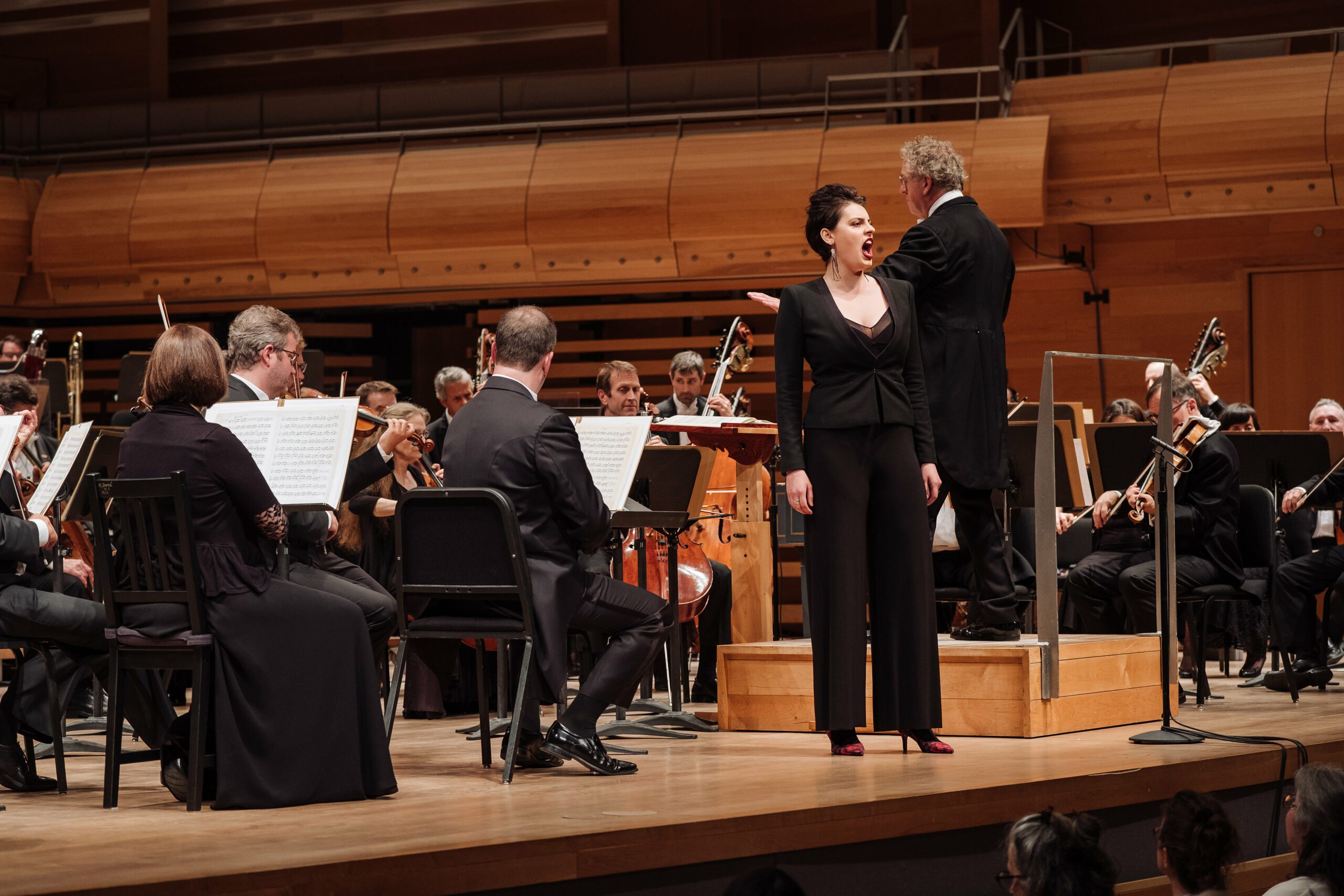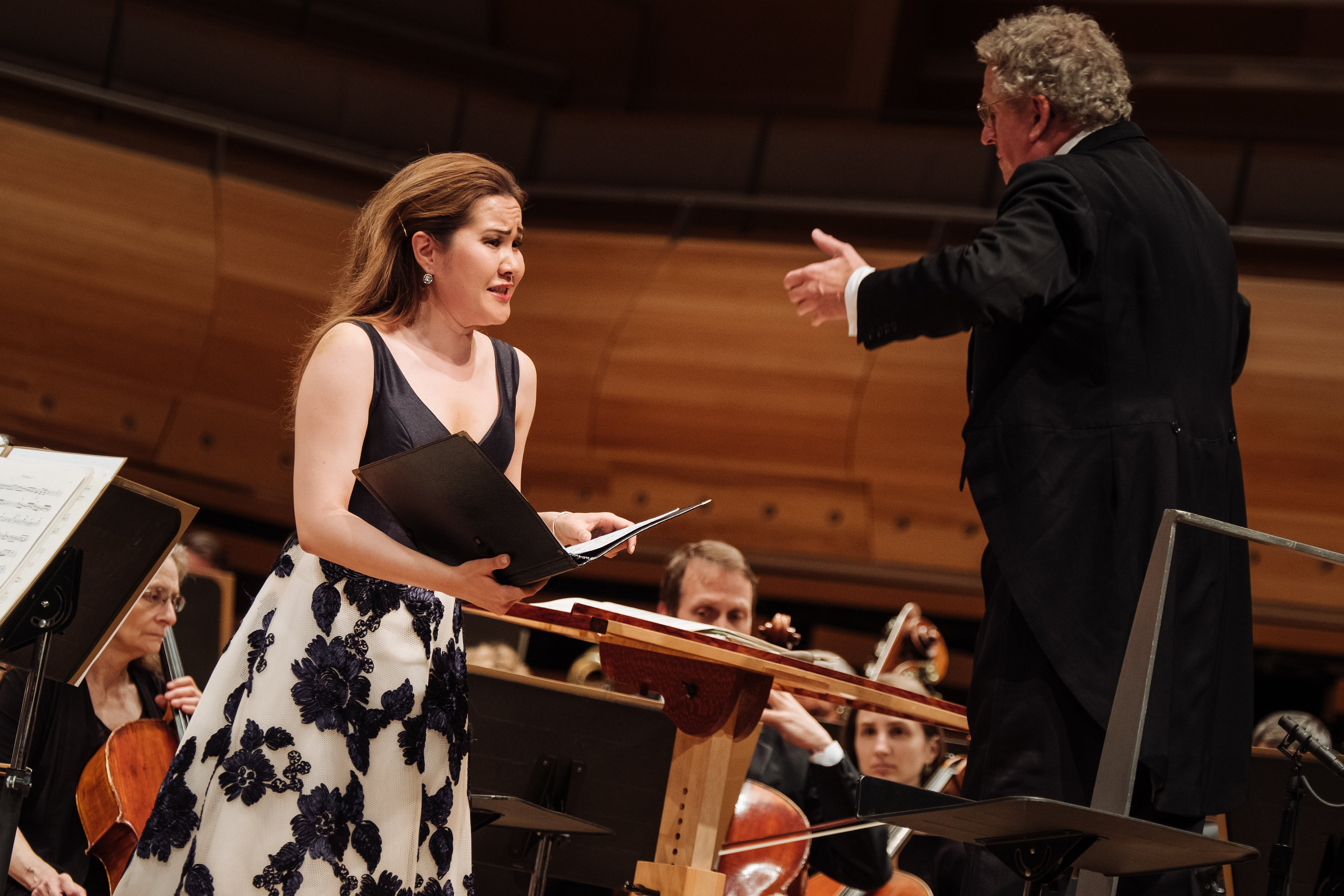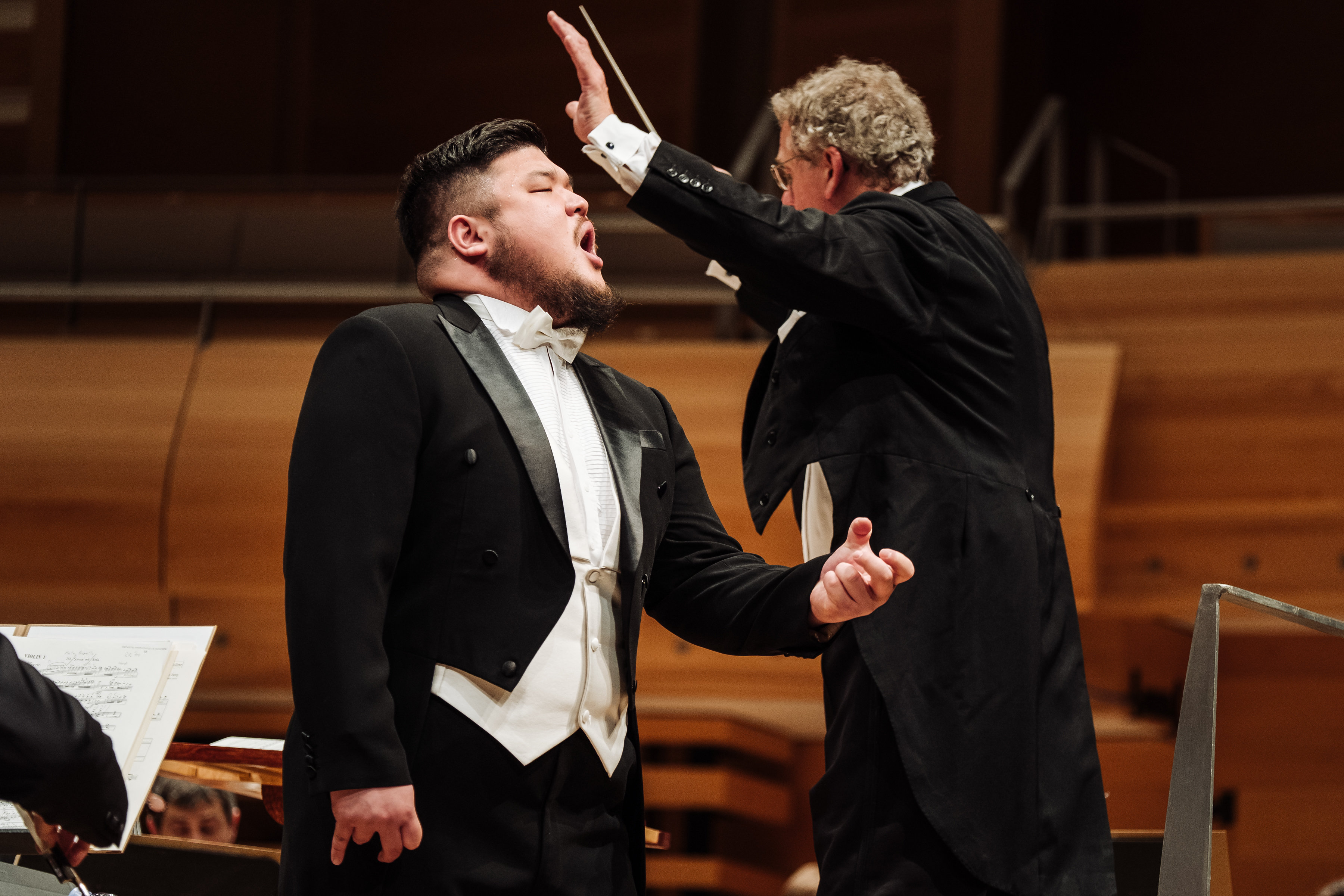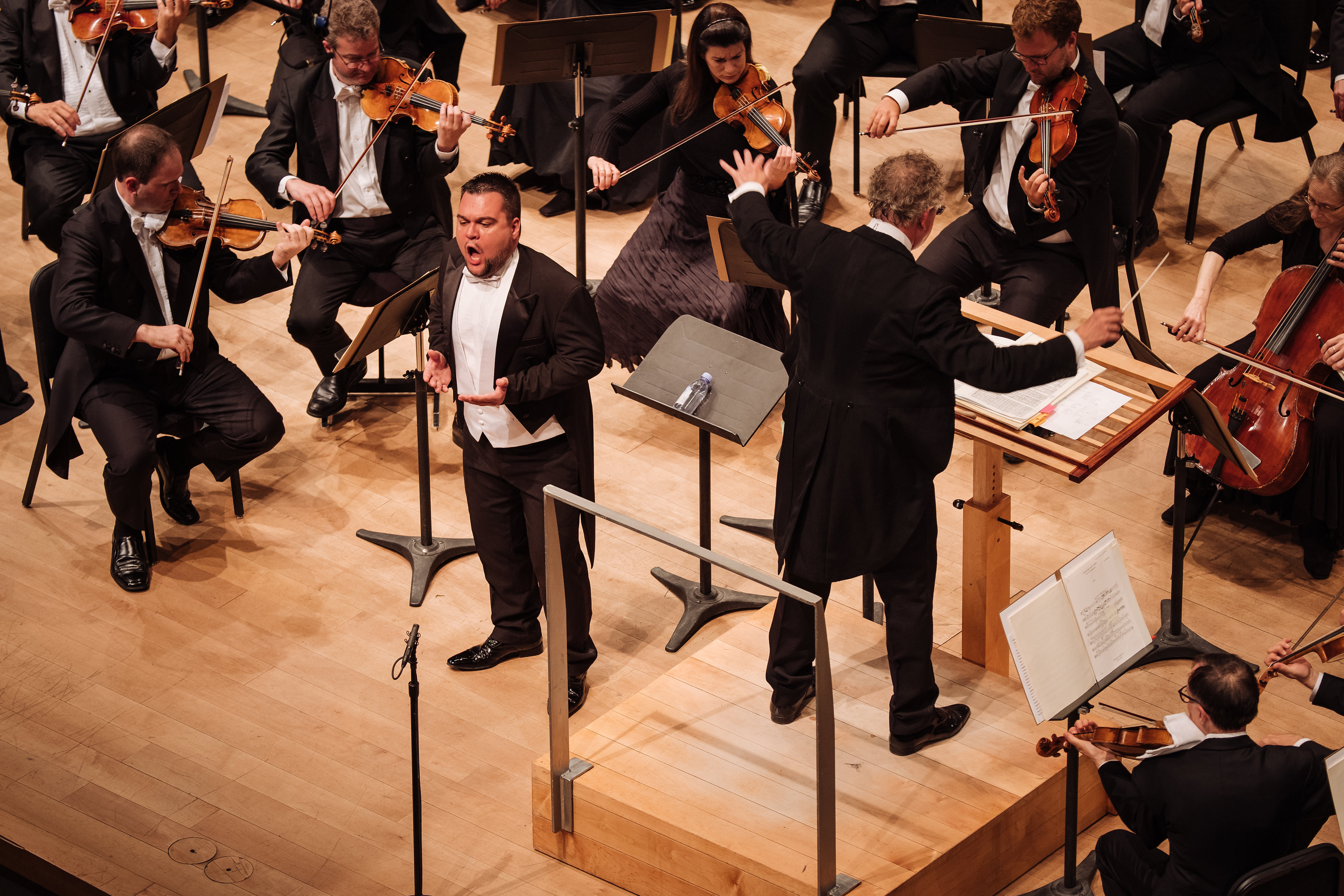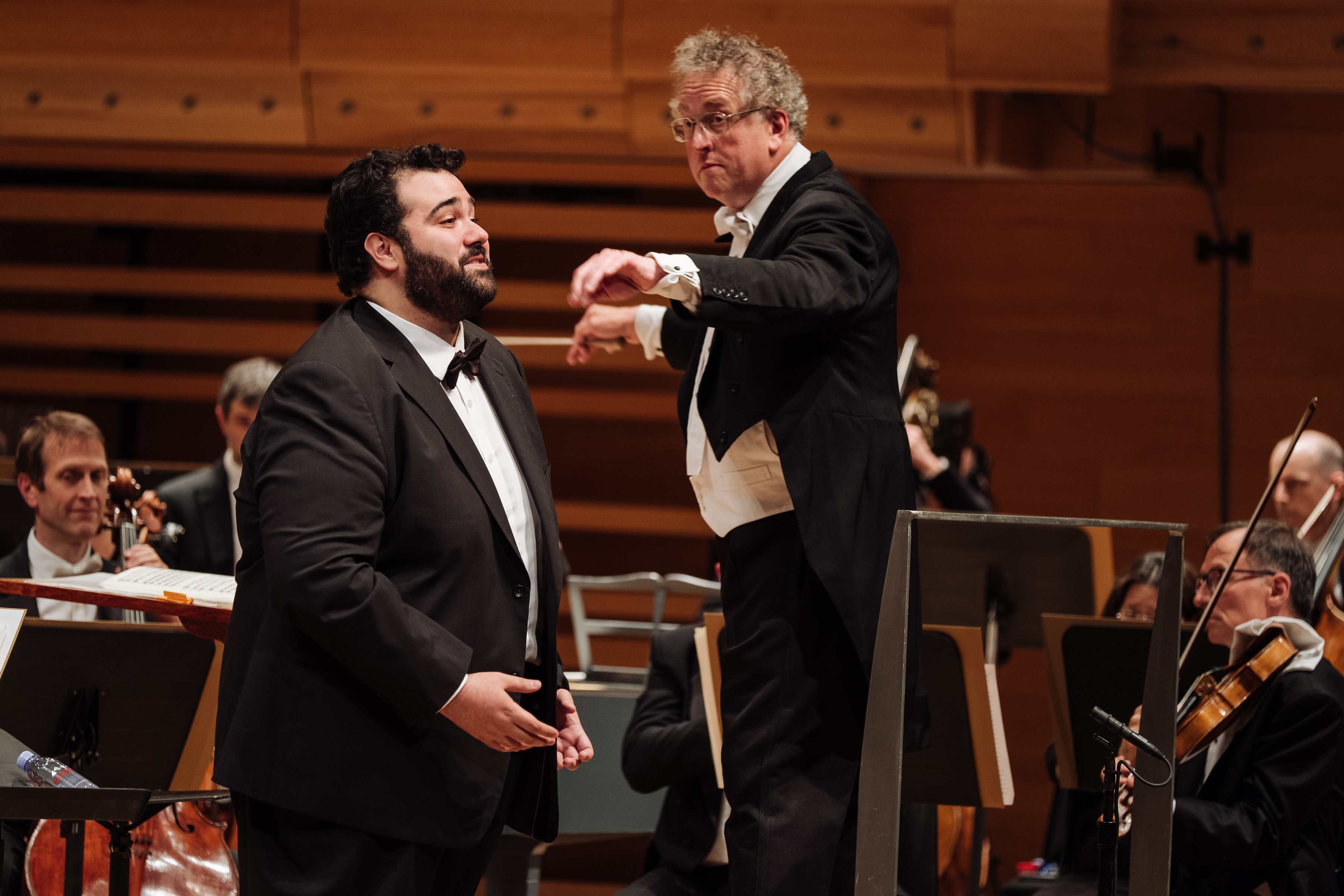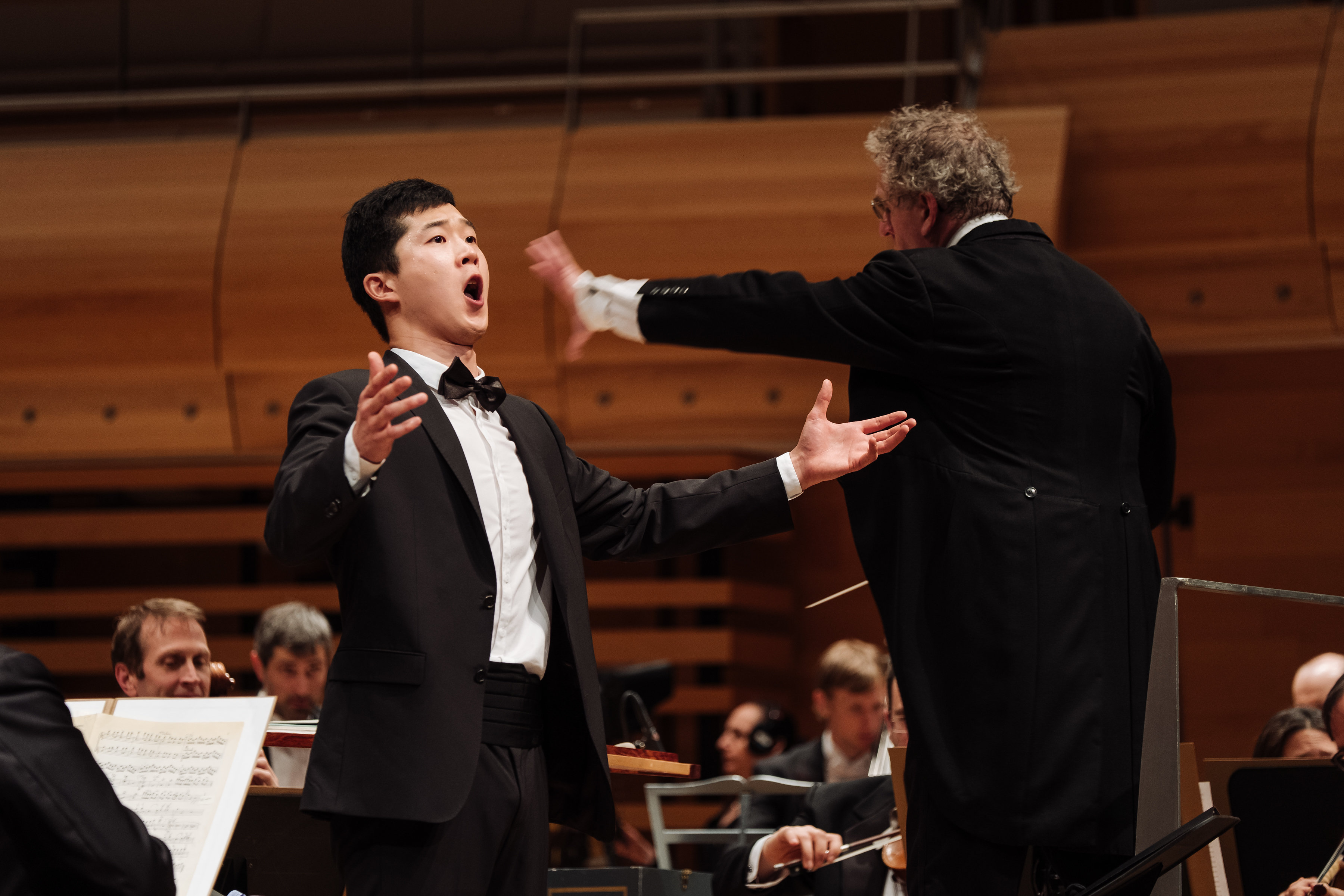First up was Russian coloratura soprano Dilyara Idrisova who impressed with her clear, carrying tone (although a ‘light’ soprano, she had no trouble projecting over the orchestra in a very reverberant hall) and jaw-droppingly precise fast runs—lots of notes sung very quickly and cleanly. This skill was most evident in her final selection, “Al destin, che la minaccia,” from Mozart’s early opera seria, Mitridate, Re di Ponto. Typical of the Austrian wunderkind’s early style, the aria requires the singer to negotiate huge, beyond-an-octave leaps; fast staccati (picking at notes very quickly…and then moving on!) and the aforementioned coloratura. Idrisova handled all of this with aplomb, demonstrating not just a formidable technique, but admirable characterization. In her oratorio selection, “Zerfliesse, mein Herze” from Bach’s St. John Passion, only her unidiomatic German marred an otherwise poised and touching reflection on Christ’s death.
South Korean baritone Kidon Choi certainly possesses the big, rich, ringing tone so much in demand for the Italian Romantic repertoire—a classic ‘Verdi’ baritone. He served notice with his opening aria, “O monumento” from Ponchielli’s La Gioconda, unleashing a huge swathe of sound from the get-go. Unfortunately, this was generally all he had to offer, singing all of his selections with the same unvarying, slightly gruff demeanour. This tendency was especially noticeable in “Ô Nadir, tendre ami de mon jeune âge” which as the title suggests, is Zurga’s heartfelt reflection on a bromance gone sour. Bizet is very different than Ponchielli or Verdi (his last selection was Macbeth’s “Pietà, rispetto, amore”), requiring a lighter, cleaner line and Choi’s French diction was unclear.
Tenor Mihail Mihaylov from Bulgaria has a beautiful voice, but last night, seemed to be in vocal difficulty, repeatedly plugging his nose as if to clear his sinuses. This may have prevented him from focusing on anything more than vocal production. In the gorgeous orchestral introduction to Donizetti’s “Una furtiva lagrima” from The Elixir of Love, Mihaylov did little to establish any characterization. At times, his sound is reminiscent of Luciano Pavarotti’s, but he also demonstrated some of the Italian tenor’s more idiosyncratic mannerisms, such as adding a voiced ‘uh’ sound at the end of words.
As Canadian mezzo-soprano Emily D’Angelo strode onto the stage in her stylish black pant suit, and unleashed Dorabella’s plea to “close the windows” with hilarious mock-heroics, we were in the hands of a singer absolutely clear about her intentions. D’Angelo went on to amaze with her sumptuous, rich tone, secure technique and riveting stage presence. The vocal highlight of the evening had to be her rendition of “Dopo notte, atra e funesta” from Handel’s Ariodante. Virtuoso does not even begin to describe the very personal ornamentation D’Angelo brought to her repeat of the opening, ‘A’ section of the aria—never were so many runs and trills dispatched with such clarity and intention! Her bold choice of three orchestrated songs by Alban Berg showed another, more lyric and ecstatic side of her artistry.
Tenor Andrew Haji, one of three Canadians in the semi-finals (Rihab Chaieb sings tonight) showed us why he is one of the most promising lyric tenors on our national scene. His beautifully-produced, medium-weight tenor filled the hall with its bright, forward resonance. Alongside D’Angelo, he presented the most polished, demonstrative characterizations of the evening, subtly differentiating his lovesick Alfredo (in his La traviata aria) from his love-struck Tamino (The Magic Flute) and longing Des Grieux (Massenet’s Manon). Vocally, he was just about impeccable, singing in clear Italian, German and French. He surprised us in “Je crois entendre encore” from Bizet’s The Pearl Fishers by singing it without the usual showy, interpolated high ending, just as the composer intended.
The evening’s final singer was South Korean bass Jongsoo Yang. This lanky, young basso sings with rich, burnished lyric tone—perfect for roles like Mozart’s Figaro and Rossini’s Basilio. There was a twinkle in his eye as Figaro sends Cherubino off to the army in “Non più andrai” and he captured all of Basilio’s toxic smarminess in “La calunnia.” There were a couple of occasions where he pulled back the reigns on his breath support a little too much and the sound disappeared, especially in parlando (sung/spoken) phrases lower in his range. Breath support was a bit of an issue in Handel’s “The people that walked in darkness” from Handel’s Messiah where a tremolo crept into what ideally should be a longer, legato line.
Conductor Jenkins had the formidable job of leading the orchestra through a huge variety of musical styles from full-on Romantic, to chamber orchestra for the Bach. For the most part, these transitions were handled well and it was great to hear the MSO live in their home concert hall.
Predictions? Three of these semi-finalists should go on to the finals. D’Angelo and Haji seem to be shoe-ins. It’s hard to choose between Idrisova and Yang—two completely different types of singers but each accomplished in their own vocal fachs. We will have the answer tonight!

